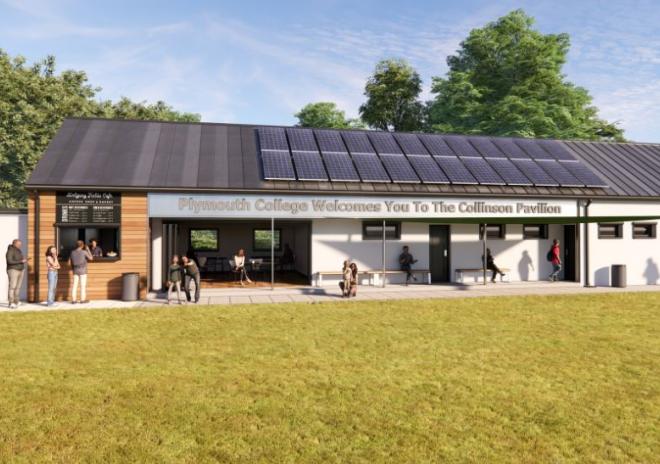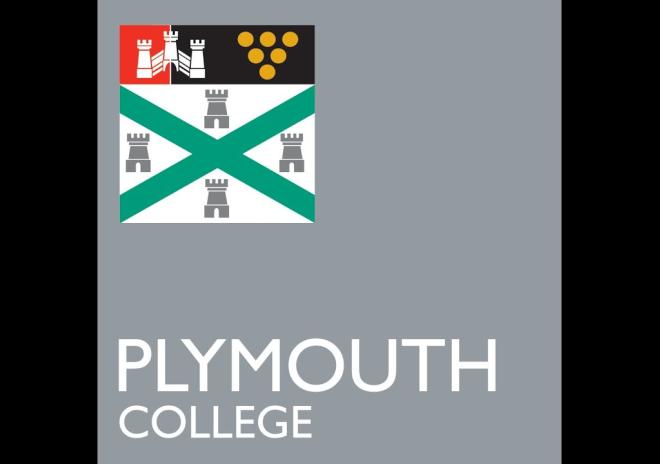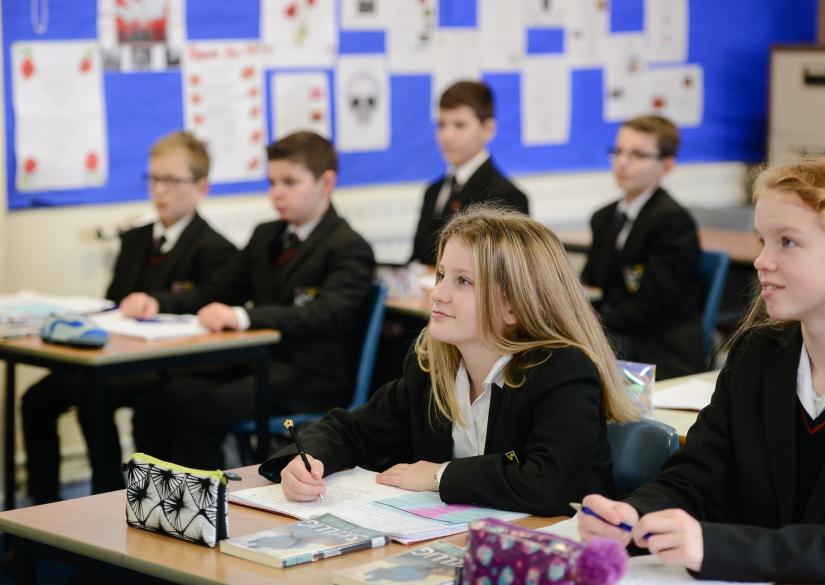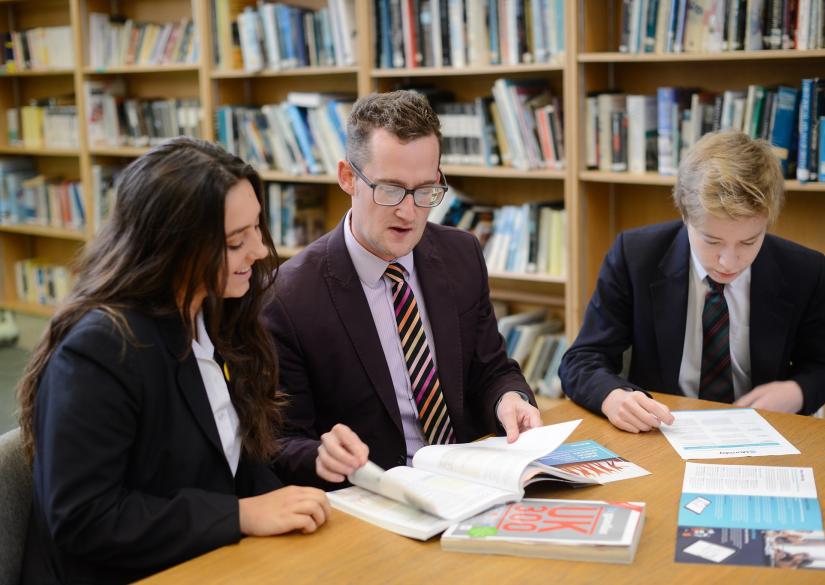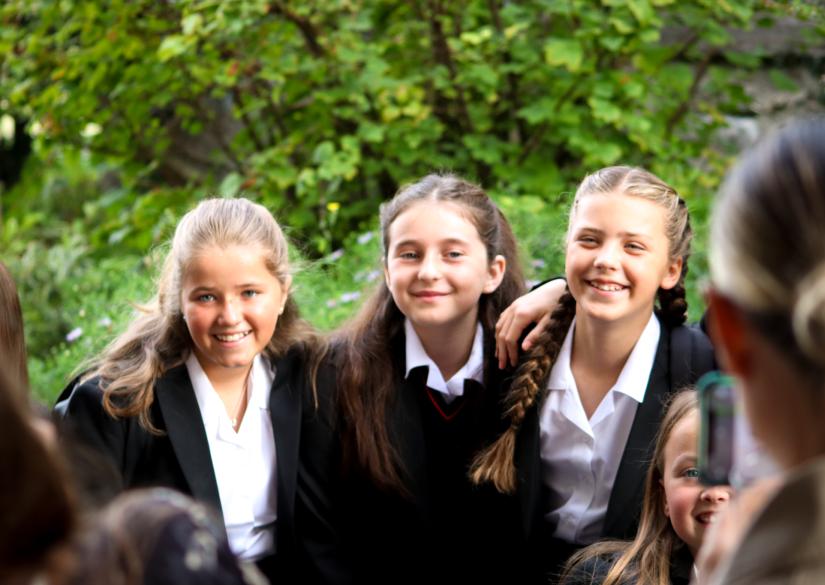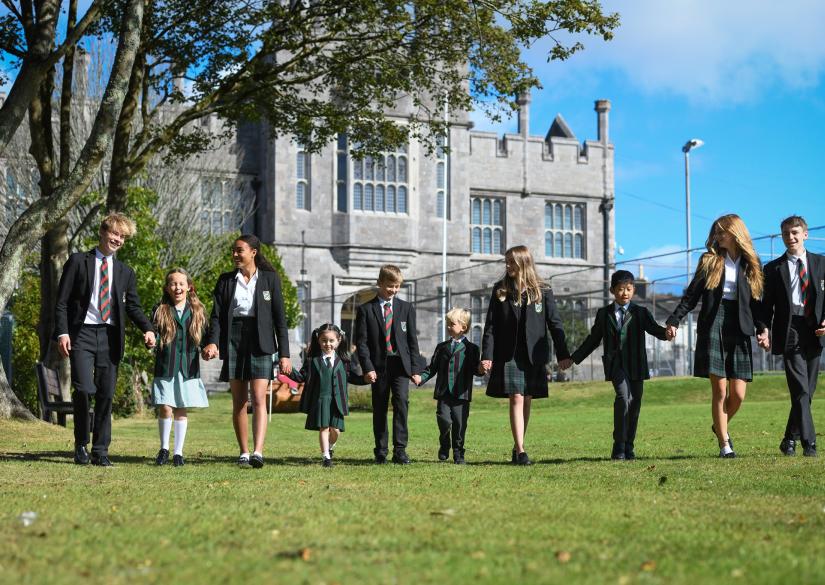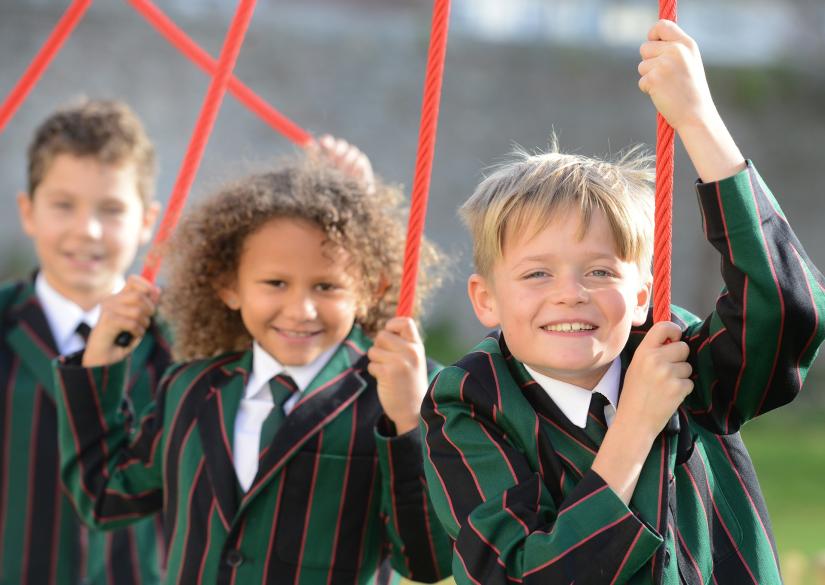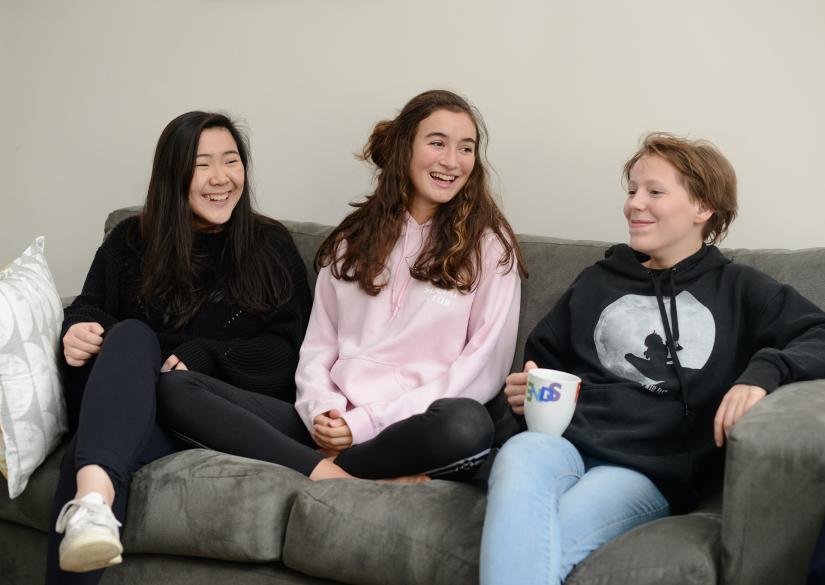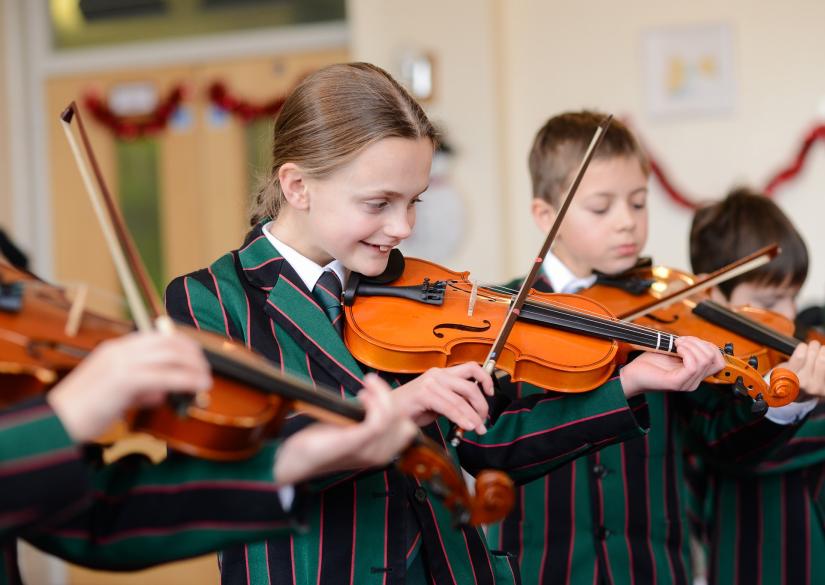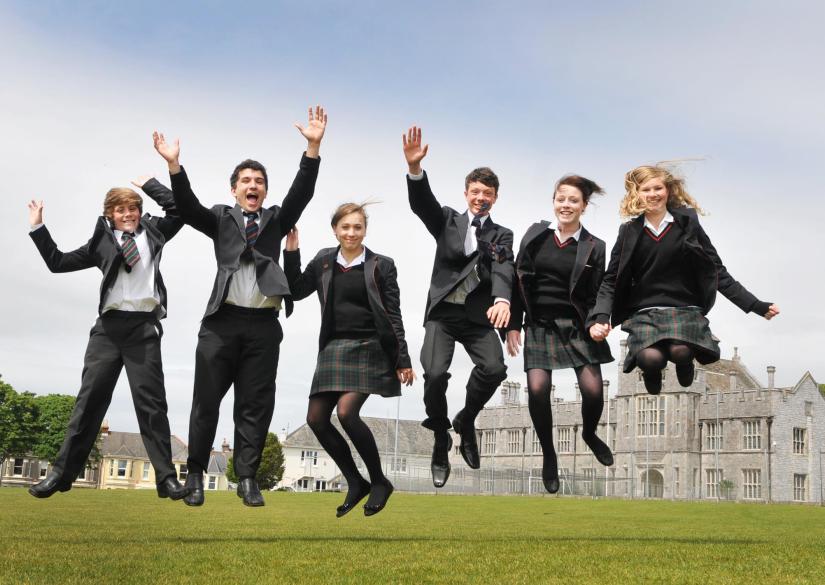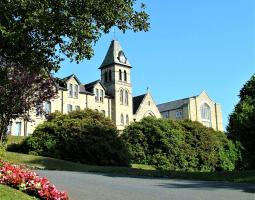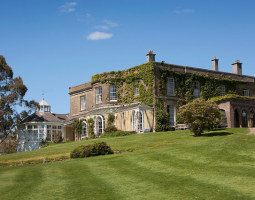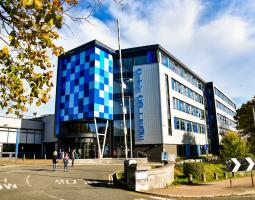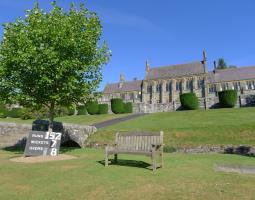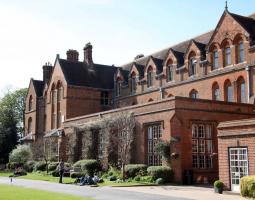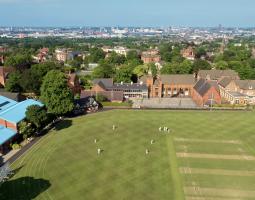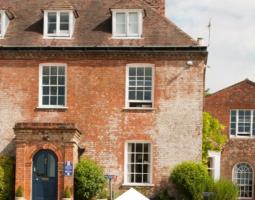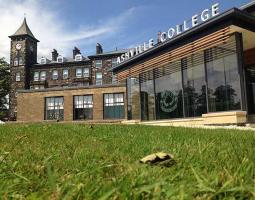Plymouth College
Programs and prices, tuition fees in Plymouth College
Prep School, Preparatory Department
- Age – from 3 to 11 years old,
- The duration of the study is eight years.
The prep curriculum is an ambitious, challenging program focused on encouraging creativity, instilling a love of learning, and reinforcing understanding and skills, not just basic knowledge. The small class sizes allow experienced specialist teachers to truly get to know each child as an individual, to offer them an individual education.
The Preparatory Department consists of four educational stages:
- Early Years
Pupils from the age of three are taught according to a special plan of seven areas of study: communication and language, physical development, personal, social and emotional development, literacy, mathematics, world understanding, expressive art and design. Play-based learning ensures that students acquire the knowledge they need in a supportive environment. Specialized music and physical education education allows children to develop, and time spent outdoors will provide a positive experience, a varied environment for the youngest students.
- 1-2 Years
Over the course of two years, students are encouraged to explore the world around them outside the school gates. Regular trips allow students to have emotions, experiences, experiences outside the campus: from farms to the sea, in the second grade, children have access to the outdoor education center at Dartmoor.
- 3-4 Years
Special instruction in French, computer science, art and food technology is introduced in addition to music and physical education. The ability to understand and manipulate language confidently and competently aids progress in all areas of learning. Creative thinking is encouraged, teamwork at meetings, singing poetry, reading aloud play an important role. Competitive sports are introduced at this age, allowing all students to represent their school in competitions throughout the year.
- 5-6 Years
In grades 5-6, a complete curriculum is offered, which includes languages, exact and natural sciences, arts, mathematics, physical education. A special PSHE lesson allows us to provide the best pastoral care for children. To bridge the gap between prep and high school, students have a personal supervisor, follow their own schedules. Class preparation begins, allowing students to work at their own pace and reach their potential, with support from teachers and mentors as needed.
Senior School , High School
- Age — from 11 to 16 years old,
- The duration of the study is five years.
High school is taught in two consecutive stages: Key Stage 3 (grades 7-9) and Key Stage 4 (grades 10-11).
The seventh grade is a smooth transition from the previous educational stage – students study the same subjects as in the sixth grade. In Years 8 and 9, there is a wide range of topics in Maths, Science, English, Humanities: this is done to help all students progress at a pace appropriate to their abilities. The size of the classes is small.
Subjects that students in grades 7-9 will study:
- English language
- Mathematics
- Biology, Chemistry, Physics,
- History, Geography, Religious Studies,
- Modern foreign languages: French, Spanish, German,
- Design Technologies,
- Informatics
- Art, Drama, Music,
- Classical civilization,
- Latin.
In the 8th grade, most students choose to specialize in two modern languages and can study Latin. Students who are not suitable for bilingual learning in grades 8-9 may instead receive additional support in English and Maths. In Year 9, pupils also have the opportunity to choose additional options from a range of art subjects: this allows pupils to start concentrating on areas of the curriculum that suit their skills and interests, providing them with a wide range of subjects when choosing subjects for GCSE.
Key Stage 4 is instruction in grades 10-11. The choice of subjects for GCSE/IGCSE begins in Year 10. Studies are becoming more focused on preparing for important exams, but there are still frequent opportunities to develop extracurricular interests: dramatic performances, hands-on research, creative design work, numerous excursions. Class sizes remain small, allowing all students to receive individualized support.
All students study the following subjects:
- English language
- English Literature,
- Mathematics
- Biology, Chemistry and Physics – taken either as three separate GCSE exams or as a combined science test equal to two GCSE exams,
- Four additional electives. Students are recommended to study at least one humanities subject, one modern foreign language.
Elective subjects available for study:
- Arts: Fine Arts, Photography,
- Business
- Classical civilization,
- Informatics
- Design, technology,
- Drama
- Modern languages: German, Spanish,
- Geography
- History
- Latin
- Music
- Physical Education,
- Religion.
GCSE/IGCSE exams in most subjects are taken at the end of Year 11.
International Preparation Course
- Age — from 15 years old,
- The duration of the study is one year.
For international students of the 11th grade, a one-year preparation course is available for the transition to the Sixth Form, admission to A-Level or sports bachelor's degree. Students study together with other students, attending classes in subjects such as mathematics, English, natural sciences, individual lessons in the humanities, foreign languages are available to them.
This programme allows pupils to gain a range of GCSE qualifications in as little as one year. The course can be tailored to the individual needs of each student, with additional support lessons available if needed.
Sixth Form: A-Level, Graduating Classes: A-Level Course
- Age — from 16 to 18 years old,
- The duration of the training is two years.
The Sixth Form program prepares high school students for the final stage, the A-Level exams. Students choose three to four subjects to study over a two-year period.
Some of the disciplines available to study and prepare for exams are:
- Art
- Biology
- Chemistry
- Economics
- English Literature,
- French
- Geography
- German
- History
- Mathematics
- Music
- Physical education
- Physics
- Psychology
- Philosophy.
Every year, students achieve amazing results in their exams, with 97% of students achieving grades from A* to E, followed by places at top universities around the world.
Sixth Form: Sports Baccalaureate, Graduating Classes: Sports Baccalaureate
- Age — from 16 to 18 years old,
- The duration of the training is two years.
Based on the central qualification of the Pearson BTEC Extended Diploma in Sport and Outdoor Activities, the full two-year course offers students in-depth knowledge, skill development in the sport. The BTEC Extended Diploma is a British qualification equivalent to three A-Level exams. The Sports Baccalaureate is both a practical and academic qualification with assessment through portfolios, assignments, presentations, rather than exams.
Over the course of two years, students will explore topics such as:
- Anatomy, Psychology,
- Fitness training,
- Development of personal skills in the field of outdoor activities,
- Sports injuries,
- Careers in Sports, Outdoor Industry,
- Sports nutrition,
- Applied Leadership,
- Instruction on outdoor activities.
Each module will be assessed on 2-4 assignments, allowing students to spread the workload over two years. Grades are given at Pass, Merit or Honours (equivalent to E, C and A grades at A-Level).
Upon completion of the course, pupils will have the same opportunities for further study as A-Level graduates. More than 95% of universities accept UCAS scores for BTEC programs, many universities even give preference to them.
Description of Plymouth College
- Location: Plymouth, England,
- Founded: 1877,
- Number of students: about 600,
- Language of instruction: English,
- Type of study: mixed.
Plymouth College is a private co-educational boarding school for boys and girls aged 3 to 18.
The history of Plymouth College dates back to 1877 when, for nearly a century, it specialized in educating only male students. In 1967, the school admitted its first female students, marking the beginning of significant changes over the subsequent decades. These changes included the merging with another educational institution, the official transition to co-educational teaching for both boys and girls, and a gradual shift towards meeting contemporary educational requirements. Today, Plymouth College is recognized as a leading school in the world for sporting achievements and is among the best in the country in terms of the quality of education provided.
Plymouth College has created an environment that fosters both sporting and academic opportunities for all students, regardless of their abilities. The staff and faculty take the development of less experienced students as seriously as they do the education of exceptionally talented ones. The school's impressive accolades include Olympic, World, European, and Commonwealth champions among its students, both in junior and senior classes. If Plymouth College were a country, it would have ranked among the top 50 in the medal tally at the London Olympics!
The academic aspect of the school is equally impressive. Annual examinations confirm the high level of student preparation at the GCSE and Sixth Form stages. Graduates of Plymouth College are eagerly accepted into leading universities around the world, including the 24 Russell Group universities.
Educational process
Some key aspects of life at Plymouth College include:
- Guardianship for International Students: International students are required to have a guardian who supports them in various aspects, from assisting with school trips to attending events and organizing holiday stays with local host families.
- Academic and Pastoral Care: The staff at the school recognize that academic and pastoral needs are intertwined. They believe that only happy students can fully realize their potential and excel in their studies. Thanks to high levels of academic and pastoral oversight and small class sizes, each child is closely monitored, ensuring any issues are quickly and effectively resolved.
- Medical Facilities: Plymouth College offers excellent medical facilities. The medical center, led by a qualified registered nurse, is open daily. It is connected to a local GP practice, allowing boarding students to see a doctor on site.
- Independent Counseling: The school has its independent counselor, ensuring students have access to support throughout the school day. Healthy eating is promoted as part of a holistic approach to well-being. In collaboration with a qualified food supplier, the college caters to elite athletes, individuals with allergies and intolerances, and adheres to cultural diets, regularly conducting nutrition forums.
- House System: The house system is a fundamental part of life at Plymouth College, giving each student a sense of belonging and the opportunity to showcase their talents in various house competitions.
- Student Grouping and Tutoring: Students are organized into groups based on age and meet daily with a personal tutor, covering the development of knowledge in PHSE, RSE, and career guidance.
Faculties and colleges
Plymouth College has several academic departments, each dedicated to teaching a specific age group of students, ranging from the preparatory stage to the final Sixth Form years.
Things to know about
Plymouth College is proud of its collaboration with "Plymouth Leander" — one of the leading swimming clubs in the UK — to provide one of the world's finest swimming programs. This partnership enables talented athletes to meet the demands of a professional swimming program. Since the beginning of the century, Plymouth College has produced over 160 athletes representing 47 different countries in 15 different sports.
Accommodation, meals, prices
The residences at Plymouth College, conveniently located at the heart of the campus, are compact and cozy enough to create a homely atmosphere for all its occupants. The residential buildings comprise a series of Victorian villas where boys and girls live separately. Adjacent to the student accommodations are quarters for some staff and college faculty.
Accommodation in the boarding school is organized for students from Year 7 onwards and is offered in three formats:
- Full Boarding: Continuous residence on campus.
- Weekly Boarding: Students stay in the residence during school days only.
- Flexible Boarding: Allows for an individualized living plan for days when it is necessary.
Younger boarders typically share a room with two others, while older students are offered single or double rooms. Each resident has their own space in the bedroom, including a bed, storage area, poster boards, a desk, WiFi, and a wired connection to the school network. Bathrooms are communal and located on each floor, complemented by common rooms for activities, events, and both individual and group work.
Catering at Plymouth College is also available in full, weekly, and flexible formats. Regardless of the chosen option, the number of meals, variety of dishes, and diversity of ingredients can vary according to the student's preference. The institution collaborates with Chartwells Independent, a provider of quality food products and prepared meals. A professional team of chefs prepares nutritious, fresh seasonal dishes using high-quality ingredients
Activities Plymouth College
Plymouth College offers a rich and diverse extracurricular program that encompasses a wide range of activities to enrich the lives of its students, both academically and personally. Here is an overview of the extracurricular life at Plymouth College:
-
Cultural and Extracurricular Program for Boarding Students:
- Boarding students enjoy a culturally diverse and engaging program.
- Activities include educational trips, home events, costume parties, and entertainment activities.
- Access to sports facilities in the evenings and weekends, as well as off-campus activities like cinema visits, boat rides, and surfing.
-
Clubs and Activities:
- Plymouth College offers numerous clubs, musical and theatrical opportunities, theater trips, and outdoor activities.
- Students can participate in clubs, sports matches, and sessions during lunch, after school, and on weekends.
-
Sports Program:
- Plymouth College is known for its sports program and has earned a global reputation for sports achievements.
- Sports include swimming, team sports (rugby, hockey, netball), cricket, football, girls' hockey, and netball.
- The school's facilities support physical education and mental preparation for students.
-
Music Department:
- The music department offers a robust educational program, including singing, playing keyboard instruments, composition, improvisation, and music theory.
- There are choirs, an orchestra, harmony circles, and music theory lessons.
-
Art Department:
- The art department provides a strong foundation in basic drawing skills.
- Students are introduced to a wide range of art forms, from historical to contemporary.
-
Drama:
- Students have opportunities to explore various theatrical styles, including musicals, performance evenings, and drama festivals.
- Practical masterclasses with theater professionals are part of the program.
-
Other Extracurricular Options:
- Combined Cadet Force (CCF): Develops personal responsibility, leadership, and self-discipline. Plymouth College has sections of the Royal Navy, Army, and Royal Air Force.
- Duke of Edinburgh's Award: Students can participate in bronze, silver, and gold levels, which involve practical skills, volunteering, and physical activity.
The school's extracurricular activities play a vital role in students' holistic development, offering a diverse range of opportunities for personal growth, creativity, leadership, and physical fitness. Students can explore their interests, talents, and passions in a supportive and enriching environment.
Advantages
- Awarded an "Excellent" rating in all aspects of operation following an ISI inspection.
- Finalist for the "Independent School of the Year 2020" award.
- Small class sizes enable teachers to give maximum attention to each student.
- Diverse extracurricular program with over 60 additional activity options.
- Popular among international students, hosting pupils from more than 30 countries.
- Globally renowned as a leading school with a sports profile, regularly producing Olympic athletes.
- High scores in final exams: GCSE, iGCSE – grades 9-4, A*-C, and at A-Level, BTEC – grades A*E in 97% of cases.
- Graduates achieve excellent results in university admissions, securing places at leading universities worldwide.
- Partnership relationships with local swimming, football, basketball, and fencing clubs.
Facilities and equipment at Plymouth College
Plymouth College is located in the heart of Plymouth city, just a short walk from the southern coastlines and the beautiful countryside of Dartmoor National Park to the north. The college enjoys easy access to all cultural and entertainment facilities, including a wide range of restaurants, cinemas, theaters, museums, and sports venues. Plymouth was named one of the top three places to visit in the world in 2020.
Though situated within the city, the main campus, known as Ford Park, extends over 13 acres. The college also owns an additional seven acres of sports fields in Delgany, just a 15-minute drive away.
Ford Park features modern infrastructure, including:
- Academic classrooms with interactive equipment.
- Specialized science laboratories for research, project work, and practical sessions.
- Art studios.
- Computer labs with PCs and access to electronic databases.
- Music and theater halls.
- A swimming pool.
- An indoor sports hall with areas for games and individual education.
- Residences.
- A dining hall and George’s cafeteria.
- Fields for team sports, rugby, and cricket.
- A blend of Victorian architecture and modern buildings across the campus.
Plymouth College is easily accessible via the international airports at Exeter and Bristol. The school also offers accompanied transfers to Heathrow Airport.
Admission dates and extra charges
The academic year at Plymouth College consists of several semesters:
- Autumn: September - December
- Spring: January - March
- Summer: April - July
Throughout the year, students attend classes on weekdays, rest on weekends, national and international holidays, and during holidays such as Christmas, Easter, and summer.
Here's an approximate list of additional fees:
- Residence and meal costs, which vary depending on the chosen type.
- Lunches for day students who do not stay in the boarding facilities.
- A registration fee upon admission.
- A refundable deposit.
- A deposit to reserve a place in the course.
- Medical insurance.
- Insurance for the student's personal belongings.
- Some activities, including field trips.
- Personal expenses.
Enrolment process
Staff at Plymouth College recommend that prospective students begin their acquaintance with the college by visiting the campus. If a prospective student is unable to visit in person, they can contact the admissions office remotely. A short initial visit allows them to see the college firsthand, meet some of the students and teachers. The college also organizes a "taster day" – a day-long visit to attend classes and interact with teachers, giving a sense of the academic and extracurricular atmosphere.
The admission process involves several registration stages:
- Completing the application and providing required documents.
- Undergoing entrance examinations either in person or online, including tests in English and mathematics, and an interview.
- Receiving an official letter of acceptance, which can be used to arrange visa documents.
- Arriving on campus: moving into the residence, attending orientation events, and starting classes.
Enrolment statistics
As Plymouth College is very popular among local and international students, applications should be submitted at least one year in advance.
Perspectives
Graduates of Plymouth College consistently demonstrate the quality of the education and knowledge imparted through their performances in exams. After completing their education at Plymouth College, students are admitted to leading universities around the world, including:
- Oxford Brookes University
- Durham University
- King's College London
- University of Aberdeen
- University of Bristol
- University of Warwick
- University College London
- University of Glasgow
- St. Mary's University
- Humboldt University (Berlin)
- University of Vienna
- Vienna University of Technology
Entry requirements, how to apply, what is required to enrol
Due to the reputation of Plymouth College, staff recommend submitting applications as early as possible. Applications are accepted from Year 7 (age 11) through to Year 12 (age 16+).
International applicants should provide the following:
- Personal documents: Birth certificate, passport, medical insurance, visa, or residence permit.
- School reports from the current and previous academic years.
To ensure a comfortable learning experience, prospective students need to have a sufficient level of English proficiency. The required proficiency level varies depending on the year of entry – older students preparing for exams particularly need a high level of English. On average, international students should aim to achieve a B2 level of English proficiency.
Scholarships Plymouth College
Plymouth College offers scholarships to its successful students, including academic, sports, and creative scholarships, as well as awards from class leaders recognizing their students' exceptional achievements. These scholarships cover a portion of the expenses for the academic year, including the program and residence accommodation.
Additional funding programs include:
- Loyalty Discount: This is offered to students transitioning to Sixth Form from Year 11 after completing their GCSE exams. The discount applies to both years of study in the Sixth Form.
- Sibling Discount: A discount of 10% off the total cost of tuition and accommodation is offered for the second sibling and an additional 5% for each subsequent younger relative, as long as the older sibling continues to study at the college.
- Armed Forces Family Package: A discount of 20% is applied for children of military personnel.
Institution on the map
Residence permits, citizenship and other services
- Guardianship services during the studies
- Student supervision
Review about Plymouth College
Recommendations on when to apply
| Language courses, schools and children's language camps | Primary and secondary education - private schools | Preparation programmes for entering universities - higher education | Higher education (after completing accredited programs A-level, IB, High School) - Bachelor, Master, MBA |
| - we recommend to apply 6-9 months before the start of the course (some camps and schools offer discounts for early booking or for lengthy study programs) - there are some very popular and high demand children's camps, where the applications need to be submitted 1 year in advance (in particular Switzerland , Great Britain , USA , Canada , Austria) | - we recommend to apply one year before the start of the training program, - some schools have a specific time frame (September-November - please specify an individual school) - some schools require tests in several stages (UKISET, internal tests of the school: English, mathematics, logics, subjects, interview, some require a personal visit) | - we recommend to apply one year before the start of the program, - for Foundation and Pathway programs, IELTS and TOEFL certificates are usually required, respectively | - recommended submission one year before the start of the program, - the deadline normally closes in January, for TOP HEIs and, as a rule, in March in other universities - for a bachelor, a Foundation or Pathway preparatory program a completed A-level, IB, High School + IELTS / TOEFL are required - for Masters you need a graduated higher education, in some cases you need a pre-Masters program - MBA requires completed higher education, work experience preferably at least 2-3 years, etc. |




